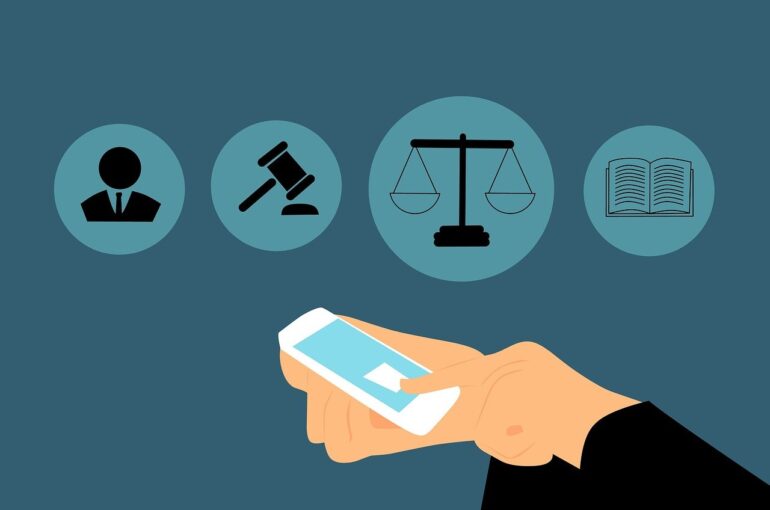How to defend yourself when your company’s reputation is at stake? Compensation for violation of personal interests of a legal entity
The Supreme Court resolved a rather unclear issue regarding legal entities’ claims for compensation for violations of personal interests by a 2023 resolution. This change in legal interpretation opens up a new chapter for legal entities that have suffered damage to their personal rights, such as by violating their good name on the Internet.
The resolution stipulates that “A company may demand that the entity that has violated its personal rights pay compensation for the harm it has suffered.” The unambiguous position of the Supreme Court, not only clarifies the legal complexities, but also entitles legal entities to seek compensation for the damage caused to their intangible property.
Does a legal entity have personal interests?
For legal entities, especially companies doing business, an important part of business management is personal interests, directly linked to both the image and material realm.
But what are the personal assets of a legal entity? Case law indicates that they are non-material values that enable a legal entity to act in accordance with its scope. Among them, it is worth mentioning:
- name,
- company,
- freedom to conduct statutory activities,
- reputation,
- good name (otherwise goodwill).
What are examples of violations of the personal rights of legal entities?
In an era where a company’s reputation can be tarnished with a single social media post, risk management becomes paramount. The professional interests of a company often intertwine with personal gain, and any reputational risk can cost millions. It’s essential to understand potential conflicts that could arise between parties involved, and employees must always work in the best interests of the company’s operations.
What actions, then, can a legal entity consider as violating its goodwill? For example, it is the publication of content that would undermine its credibility, or as a result of which the company’s image would be damaged. This is a very important issue, especially in the era of ever-growing social media.
Many companies choose to conduct marketing activities through such communication channels as Twitter, Facebook, LinkedIn, or Instagram. This is a convenient and effective tool, but at the same time it carries certain risks. Entrepreneurs are definitely at greater risk of losing good property or reputation.
An interesting case is also when personal gain interferes with professional duties, a breach of fiduciary duty might occur. For example, an employee might divulge confidential information to a family member in a privately-owned company, leading to reputational damage. In such situations, companies need to act in the best interests of their customers and shareholders.

What is harm to a legal entity?
A conclusive interpretation by the Supreme Court allows legal entities to claim compensation for non-material harm suffered. This is when the actions of the infringer lead to hindering or making it impossible to carry out their existing activities appropriately.
In this context, it is worth considering what is harm? In the justification of the resolution, it is explained that it is a nonpecuniary harm resulting from the violation of the personal good of a legal entity.
The key factors in assessing such circumstances will then be, inter alia, the type of activity carried out, the type of personal good infringed, the reason for the infringement of the reputation, the circumstance whose personal good has been infringed. Whether there has been a significant limitation in the activity of the organizational unit, the scale of the infringement.
What are the 4 means of protecting the personal interests of legal entities?
According to Article 43 of the Civil Code, the provisions on the protection of the personal rights of natural persons shall apply mutatis mutandis to legal entities. This means that companies, or certain legally separate organizational units, can assert their rights, just like individuals. Then, in the case of violation of a personal interests, a legal entity is entitled to claim, among other things, monetary compensation.
When we consider the protection of the personal interests of legal entities, the Civil Code and its Article 448 § 1, in which the legislator pointed to 4 available means of protection, turns out to be crucial:
- Abandonment and elimination of the consequences of the violation – by means of non-pecuniary claims are provided for, which consist in restoring the state before the violation and complete cessation of further such actions.
- Monetary compensation – Payment of compensation for the harm suffered is not intended to provide satisfaction to the legal person or to compensate for the harm, but to protect the objectively understood interests related to his personal interests.
- Payment of an appropriate amount for a social purpose – the legal person is also entitled to the indicated property claims. The purpose is to impose a penalty on the violator and to show disapproval for the actions taken.
- Compensation for pecuniary damage resulting from the violation of personal interests – if the company has suffered specific financial losses as a result of the violation of personal interests, then the legal entity may claim compensation to cover these losses. This may include lost profits, the cost of repairing the company’s image or other direct expenses related to the violation.
Despite the fact that a legal entity does not suffer emotional pain or suffering like an individual, it still has the right to protect personal assets like its own identity or interests in the market. This is emphasized by the Supreme Court in the aforementioned resolution, as well as by the applicable provisions of the Civil Code.
However, it is worth considering whether the established measures adequately protect the interests of companies, in case of violation of their personal interests?
Preventive measures as the foundation of protection of the personal rights of a legal entity
The personal rights of legal entities can be protected not only through reactive actions. There is also a wide spectrum of preventive actions.
What are these actions? Legal entities can increase their resilience to potential violations by systematically monitoring the Internet and social media to detect and remove criticism early.
Protecting a company’s reputation is crucial, but sometimes it’s not enough. Compensation for damage done can be sought in court, but this could take time and resources. As such, preventive measures such as risk education, thorough market analysis, and setting strict ethical guidelines can help to avoid unethical behavior that could harm a company’s reputation.
It’s also worth investing in building strong client relationships and transparency in operations, which can minimize the risk of breaches for legal entities. In addition, companies should regularly conduct training for their employees on crisis management and ethics. This will help prepare the organization to respond more effectively in cases where their good name is violated.
Risk management is a responsibility not just of the leaders, but every person within the organization. The consequences of not following this could be a loss of money, losing customers, or even the corporation itself. This is why it is paramount for organizations to defend their interests, protect their reputation, and ensure they are legally covered against any potential risks.

Legal and PR strategies in protecting reputation
When a reputation violation occurs, it becomes crucial to act quickly and in a coordinated manner on both the legal and communications fronts. A legal entity should consider preparing advance response strategies that combine legal action with PR campaigns.
For example, in addition to going to court to pay compensation for the harm suffered or remove harmful content, it is worthwhile to work in parallel on positive messages. These messages can be quickly disseminated in the media and on the Internet.
This will help counteract the negative impact on the company’s image. Maintaining an open and honest dialogue with contractors, can significantly contribute to rebuilding trust and maintaining a stable market position for the company.
What are the effects of the Court’s ruling?
The Supreme Court’s case law sheds new light on the protection of the personal rights of legal entities. In addition, it is worth emphasizing that the realization of the protection of personal interests only by means of non-material measures, i.e., abandonment and removal of the effects of the violation, is sometimes insufficient and often illusory.
The above confirms that, as a result, legal persons using their property claims, such as monetary compensation, damages, or payment for socially useful activities, can not only effectively repair the damage suffered for the harm suffered. It also deters potential violators from future actions.
The Supreme Court’s resolution is an important step toward ensuring full and effective legal protection for legal entities that face various types of violations of their personal rights.
Do you need help with legal protection for your company? If your company has experienced a violation of personal rights, and you need expert advice, contact us at: [email protected].


